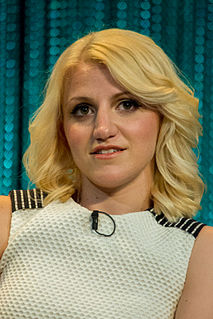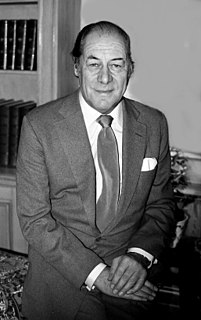A Quote by Dale Carnegie
Your purpose is to make your audience see what you saw, hear what you heard, feel what you felt. Relevant detail, couched in concrete, colorful language, is the best way to recreate the incident as it happened and to picture it for the audience.
Related Quotes
On camera, the audience can see your eyes close up - they can see behind your eyes - and when you're on stage, you need to make sure that the person sitting in the back row can feel what's happening behind your eyes, even if they can't see them. Having a live audience is exhilarating and exciting all on its own, but you know, it is quite different.
When someone says "that resonates with me" what they are saying is "I agree with you" or "I align with you." Once your ideas resonate with an audience, they will change. But, the only way to have true resonance is to understand the ones with whom you are trying to resonate. You need to spend time thinking about your audience. What unites them, what incites them? Think about your audience and what's on their mind before you begin building your presentation. It will help you identify beliefs and behavior in your audience that you can connect with. Resonate with.
Acting is bad acting if the actor himself gets emotional in the act of making the audience cry. The object is to make the audience cry, but not cry yourself. The emotion has to be inside the actor, not outside. If you stand there weeping and wailing, all your emotions will go down your shirt and nothing will go out to your audience. Audience control is really about the actor
It's funny, now that we have Twitter and Facebook and stuff, you can really see how you affect fans. Before all that, fans couldn't tell you exactly how they feel, unless they came up after a show, and even then you can't stand there and talk to everybody in the audience. So it's nice to see people tweet me and say, "Your music has changed my life," or "I had my baby to your music," or "I got married to your music." I've heard so many things, and it's amazing to hear people's stories and how you affect their life.
You know, you're doing the same show every day, and your inspiration, you have to look no further than the fact that you know people travel across the country to see you. In a lot of cases, this is that audience's only chance to see the thing, and so, that's what gets you up in the morning, and that's what gets you giving your best performance on stage, is the awareness that this audience is ready for it, and here to have an experience, and so in turn are you.





































